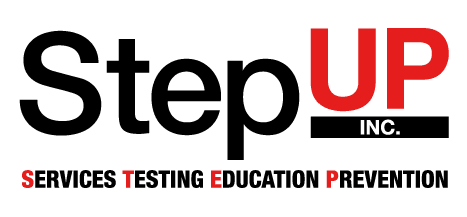HIV Prevention
Our Prevention programs utilize outreach, testing, positive health interventions, and PrEP to reduce the transmission of HIV and STIs – ultimately improving the health and wellness of the communities we serve.
HIV/STI/Hepatitis C Testing
Our in-house testing program offers HIV, STI (chlamydia, gonorrhea, and syphilis), and Hepatitis C testing during in-house operations and at numerous community-based locations throughout each week. The Centers for Disease Control and Prevention recommends that the following individuals should get tested:
- If you have injected drugs or substances or if you have shared injection equipment (needles, syringes, cookers) with others
- If you have had unprotected vaginal, anal, or oral sex with men who have sex with men, more than one partner, or with anonymous partners
- If you have had sex with someone who you do not know their history of sex partners/drug use, or if you or your partner have had many sex partners
- If you have exchanged sex for something needed
- If you have been previous diagnosed with or treated for an STI, hepatitis, or tuberculosis (TB)
- If you have had sex with someone who has done anything listed above or you don’t know their sexual history
We accept both walk-ins and appointments, so check our testing calendar for testing times and locations. For more information, please call our office at 317-259-7013 and choose option 1.
Outreach and Education
Our Prevention Team works is dedicated to improving awareness and knowledge of HIV in our local communities. Our Outreach programming is centered on minimizing barriers to HIV education, resources, and services by meeting individuals in non-traditional locations. For more information, please contact our office at 317-259-7013 and ask for Rachel Biddle.
PrEP and PEP
Pre-exposure prophylaxis (PrEP) is a type of medication that can prevent the transmission of HIV. When taken as prescribed, PrEP can reduce the risk of getting HIV from sex by 99% and from injection drug use by 74%. It does not protect against other sexually transmitted infections (STI) or pregnancy and should still be used in conjunction with condoms.
Post-exposure prophylaxis (PEP) is the use of antiretroviral drugs after a single high-risk event to stop HIV seroconversion. PEP must be started as soon as possible to be effective—and always within 72 hours of a possible exposure. PEP is not always 100% effective so we recommend to always use other HIV prevention methods to effectively prevent HIV transmission.
For more information about PrEP or PEP, please contact our office at 317-259-7013 and ask for the Prevention Team.
Health Intervention Program
Our Health Intervention Program is an effective public health approach that mitigates the risks associated with behaviors when people are unable or unwilling to stop engaging in. This Intervention program includes a range of education, recovery assistance, supplies, social services, and safer practices for substance use. People who use drugs can incorporate these practices to decrease negative health consequences associated with using substances, including the transmission of infectious diseases. For more information about our Health Intervention program, please contact our office at 317-259-7013 and ask for Sylvia Thomas.
Syringe Service Program (SSP)
Our SSP is a community prevention programs that provide a range of services that prevent spread of disease and protect communities, including linkage to substance use disorder treatment, access to and disposal of sterile syringes and injection equipment, infectious disease testing, access to overdose prevention supplies, and linkage to care and treatment for infectious diseases. Thirty years of research have shown that SSPs are are safe and effective, cost-saving, does not increase crime or using substances, and reduces the transmission of HIV, viral hepatitis, and other infectious diseases. Our SSP operates every Monday from 2-6pm out of Aspire Indiana Health’s primary care building (2506 Willowbrook Pkwy). For more information about our SSP, please contact our office at 317-259-7013 and ask for Sylvia Thomas.
